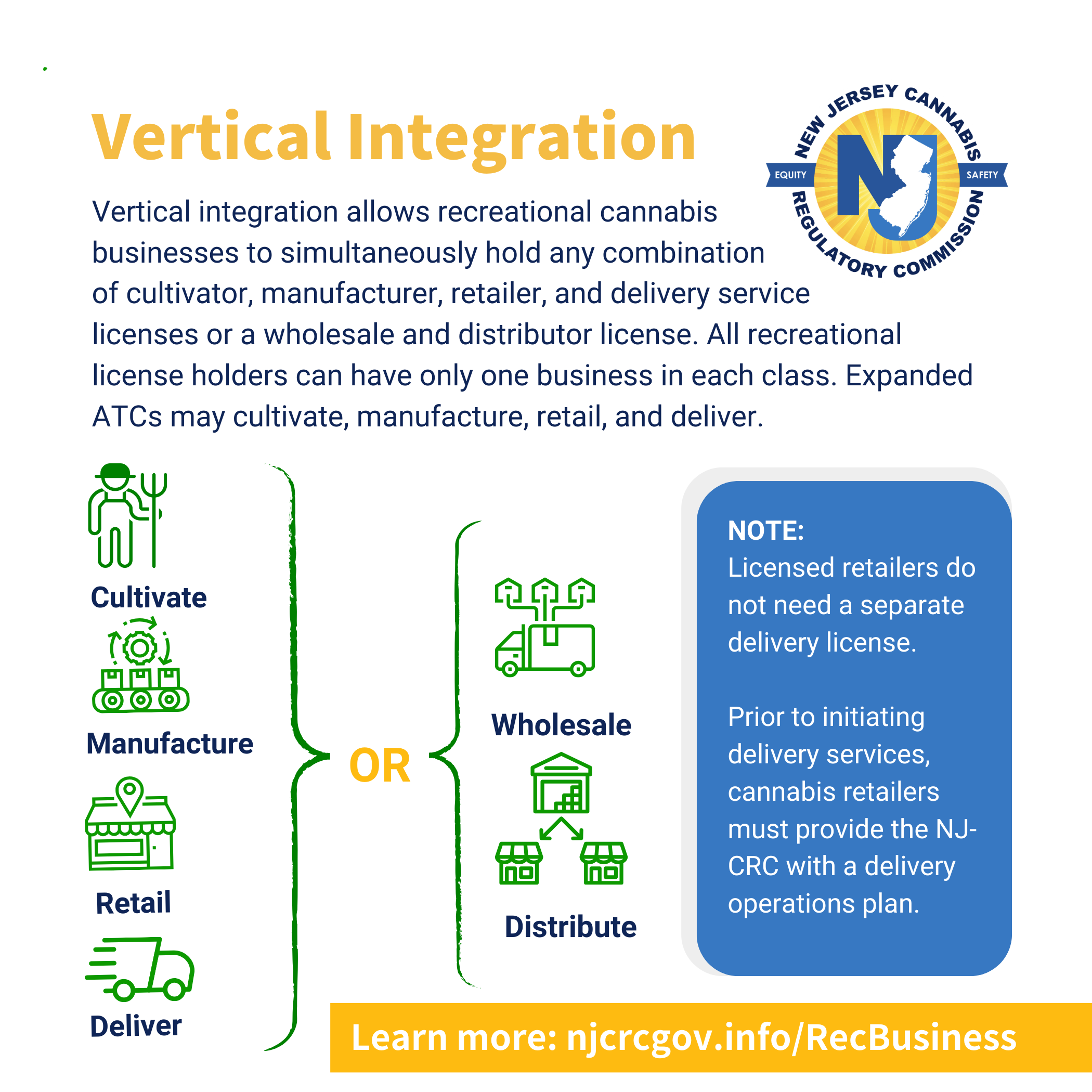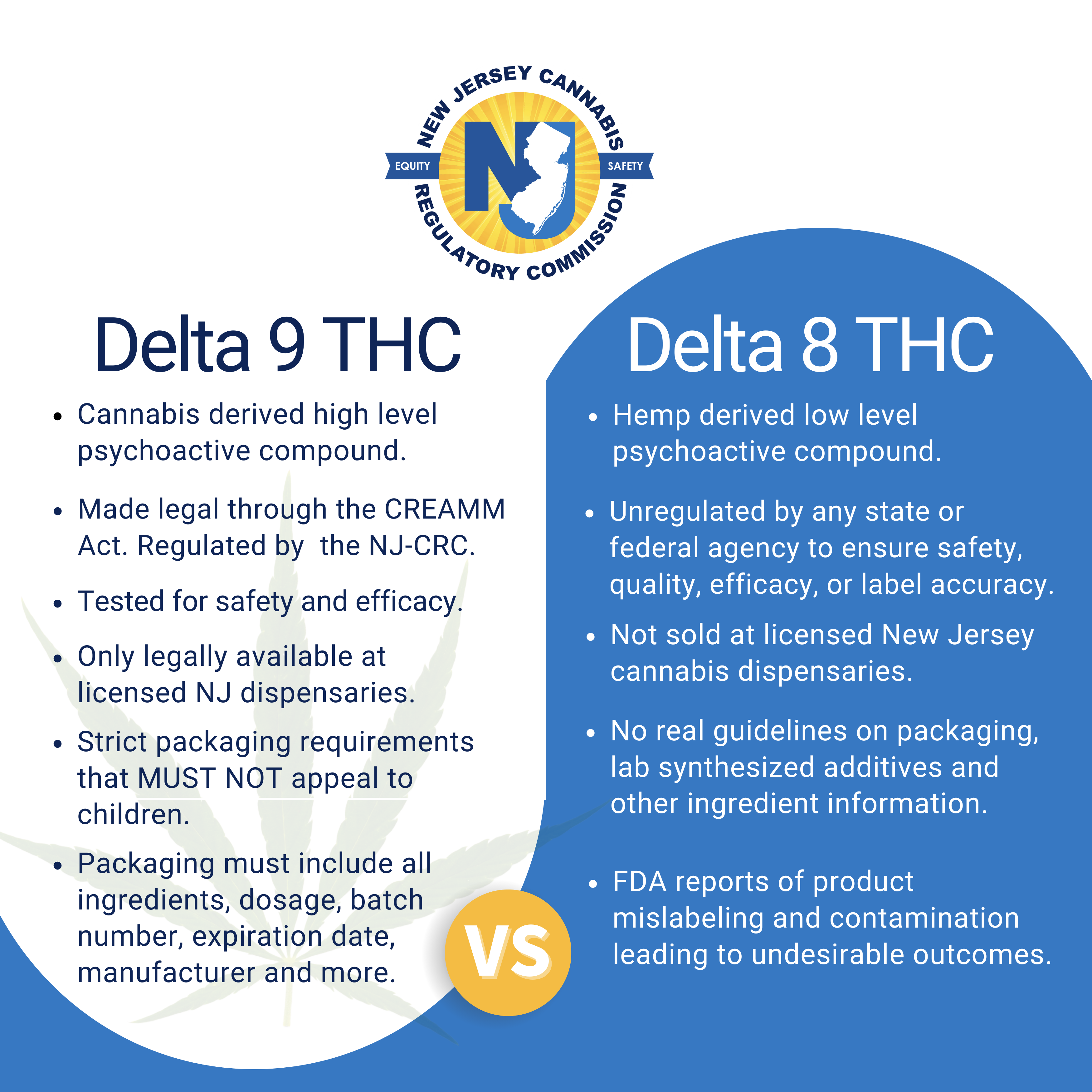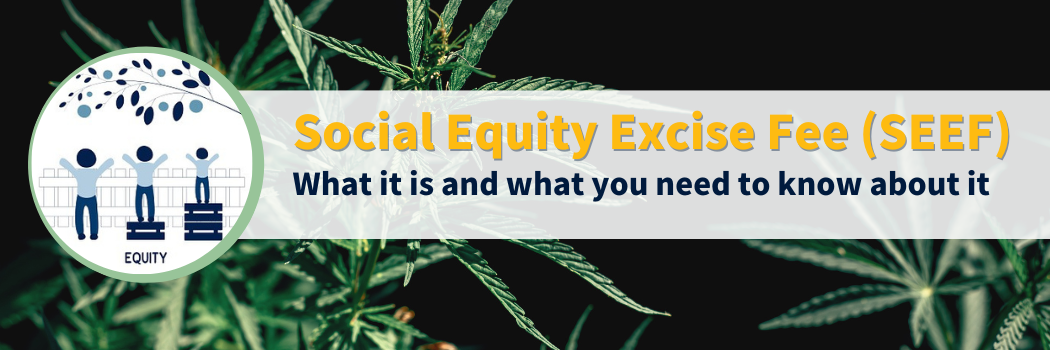
The Social Equity Excise Fee (SEEF) is a mandatory fee imposed by the NJ-CRC on cannabis cultivators, established under N.J.S.A. 17:30-3.4 of the New Jersey Cannabis Regulatory, Enforcement Assistance, and Marketplace Modernization Act (CREAMMA) and in accordance with N.J.S.A. 54:47F-1. The SEEF is collected from cannabis cultivators in New Jersey, based on the quantity of cannabis produced. The rate of the fee was initially set at $1.10 per ounce of cannabis and was adjusted to $1.52 per ounce in 2023. Currently, it stands at $1.24 per ounce.
As per the CREAMM Act, this fee may increase or decrease as the legal cannabis market matures. If the estimated average retail price of an ounce of usable cannabis in 2025 is at least $250.00 but less than $350.00, the excise fee can be up to $30.00 per ounce of usable cannabis and $8.00 per ounce of unusable cannabis sold for the purpose of manufacturing. The Commission will vote on the 2025 SEEF rate in a special meeting before November 1, 2024. (add update here if the rate changes in the special meeting 10/30) The goal is to balance revenue generation for social equity programs without placing an undue burden on businesses or consumers.
How Will SEEF Funds Be Used?
In accordance with N.J.S.A. 17:30-3.5, all revenues collected for the SEEF must be deposited into a special non-lapsing fund. The CREAMM Act requires 15% of the monies deposited, be placed into an account within the Fund to be known as the Underage Deterrence and Prevention Account for the Commission. The balance of the SEEF collected must be used
The commission held public hearings in 2022, 2023, and 2024 to get input on how SEEF funds should be spent. Following those meetings, the NJ-CRC made recommendations to the Governor's office. The recommendations for 2022, 2023 and 2024 may be found here. To date, no SEEF dollars have been spent.
Based on public hearings and written comments received in 2022, 2023, and 2024, some key areas for fund allocation include:
- Social Support Services: This would include food assistance, mental health services, treatment and recovery for substance use disorders, youth recreation, life skills support services, and services for adults and juveniles being released from incarceration
- Business Development for Social Equity Applicants: Assistance for individuals from impacted communities who are seeking entry into the cannabis industry as entrepreneurs. This can include grants, loans, and resources to help navigate the regulatory process.
- Expungement and Legal Aid Programs: Support efforts to expunge cannabis-related criminal records, which is critical for many people to access employment and entrepreneurship opportunities in the legal cannabis industry.
- Public Awareness Campaigns: Educate communities about the benefits of the legal cannabis market, the importance of supporting legal cannabis businesses, and the impact of social equity efforts.
- Community Reinvestment: Programs designed to uplift communities disproportionately affected by past cannabis-related criminalization, especially through educational and job-training programs.
Why the SEEF Matters?
The SEEF represents a direct effort to address the inequalities of the past and ensure that the legal cannabis market benefits everyone, not just a select few. New Jersey is the only state in the United States with a social equity fee or tax attached to the sale of legal cannabis. By funding programs that support those disproportionately impacted by the criminalization of cannabis, New Jersey is taking a significant step toward creating a more equitable society. The fee ensures that as the cannabis industry thrives, its success is shared with communities that have historically been marginalized.
DISCLAIMER
The information presented in this blog post is for informational purposes only and should not be used as a substitute for professional medical advice, diagnosis, or treatment. Seek advice from your physician or other qualified healthcare provider if you have any questions about a medical condition or incorporating cannabis into your treatment. Do not ignore professional medical advice or delay seeking it due to anything you may have read on this website.
Previous Blog Posts

Tips for SMART Gatherings This Holiday Season
11/26/2025
The holidays are a time for food, fun, laughter, and connecting with the people who make life sweeter. And as more adults in New Jersey choose to enjoy, or gift legal cannabis during the season, the NJ-CRC has launched its second safe-use campaign, S.M.A.R.T., to help keep celebrations (relatively) stress-free. S.M.A.R.T. is an easy way to remember the basics of responsible cannabis use, especially when travel is constant, roads are chaotic, homes are busy, and curious little ones are wandering.
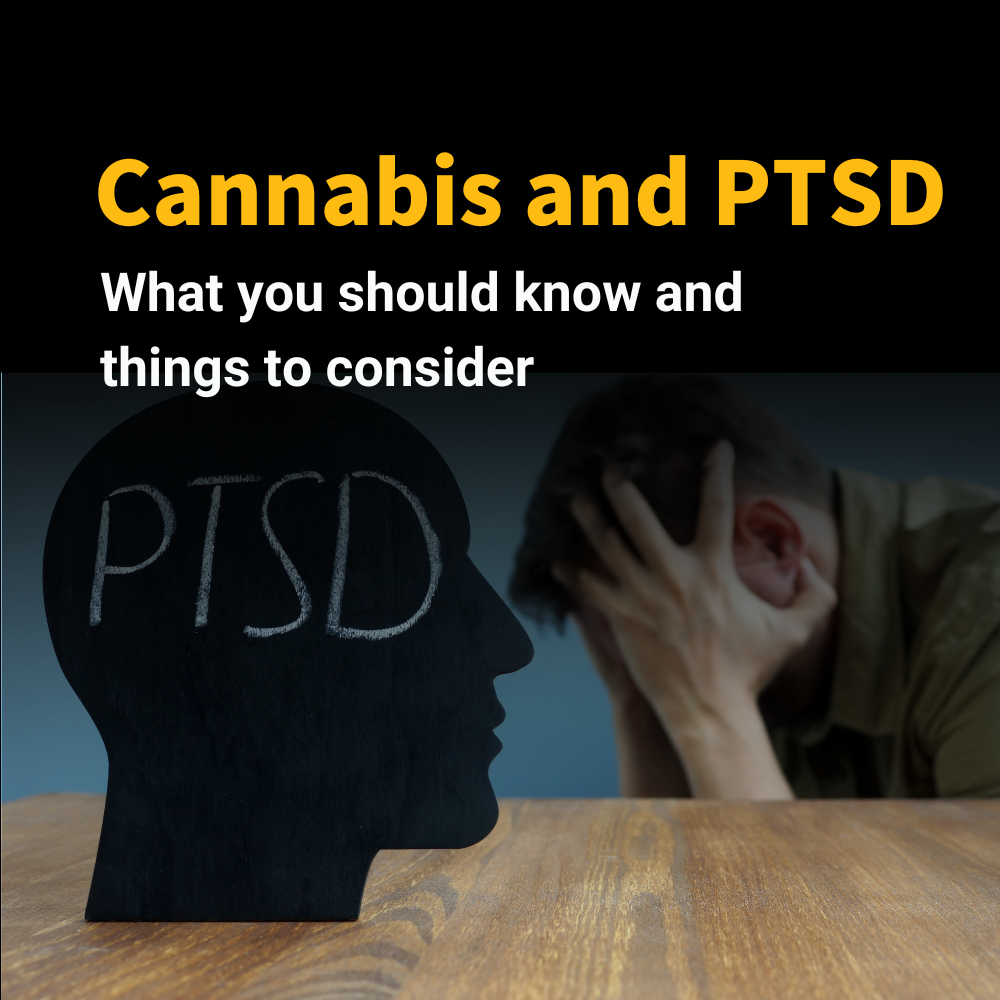
Cannabis and PTSD
09/23/2025
Post-traumatic stress disorder (PTSD) is a mental health condition that can happen after someone has lived through distressing or life-threatening events. People with PTSD may have disturbing flashbacks, nightmares, or be overly guarded. It can cause trouble sleeping, mood swings, or disruptions to daily life. This mental health condition is the third most common condition participants in New Jersey’s Medicinal Cannabis Program are treating with cannabis Many patients, including veterans, turn to cannabis when other treatments are not enough or don't work.
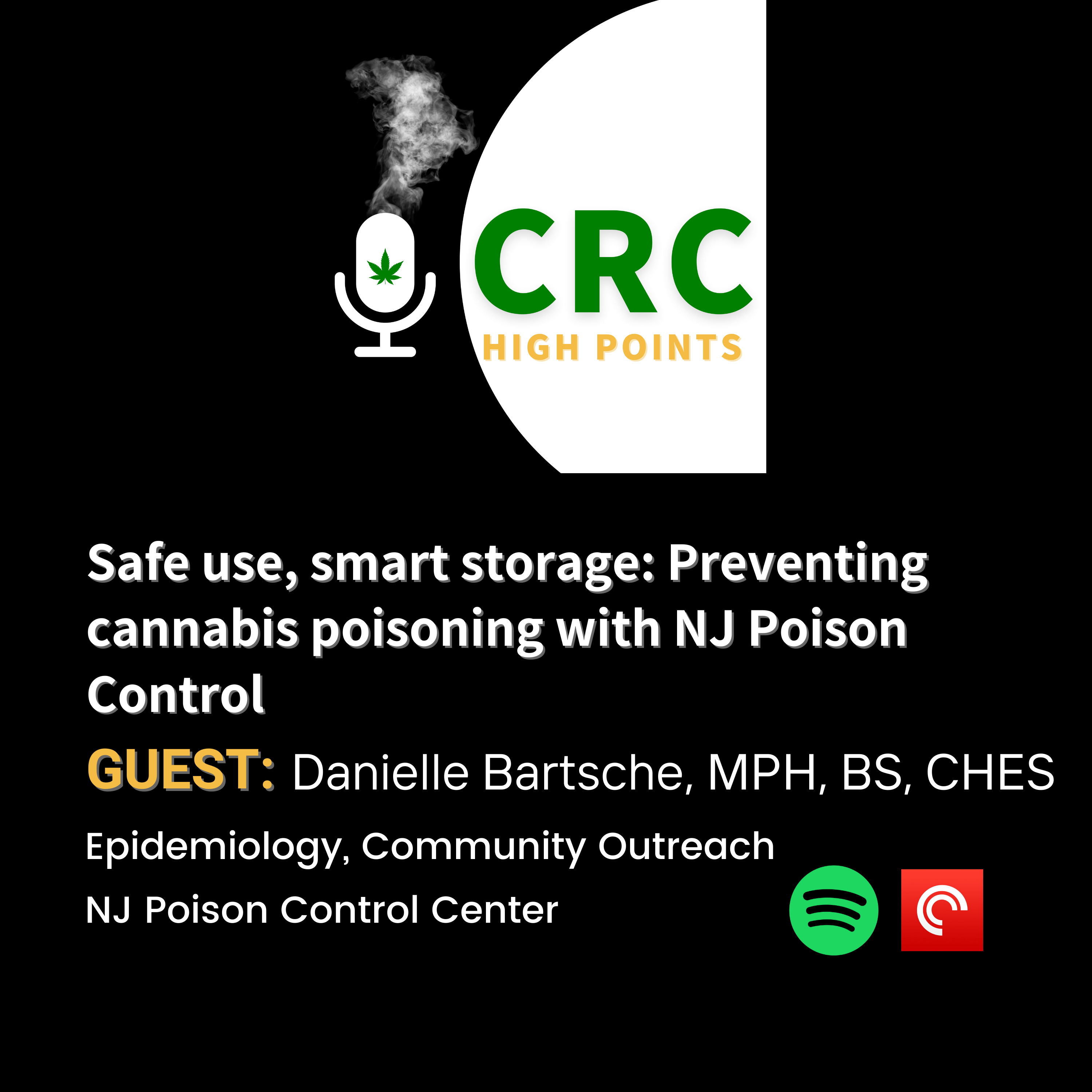
Safe use, smart storage: Preventing cannabis poisoning with NJ Poison Control
09/5/2025
In this episode of High Points, Danielle Bartsche, MPH, BS, CHES, who focuses on epidemiology and community outreach for the New Jersey Poison Control Center, discusses how cannabis poisoning can affect adults, children, and pets, what symptoms to look out for, and what steps to take if an overdose is suspected. Danielle also highlights how New Jersey’s packaging requirements, consumer education, and the availability of Poison Control support are helping to reduce risks and promote responsible cannabis use.
 Official Site of The State of New Jersey
Official Site of The State of New Jersey
